Last Updated
There are a lot of things that Cancun does to keep tourists safe when visiting the destination.
Military and police patrol beaches and tourist hotspots, security cameras have been installed all over town, drones are used to monitor tourist areas, and more.
Now officials have gone one step further, as Cancun police will begin wearing body cameras to increase monitoring and enhance safety even more.
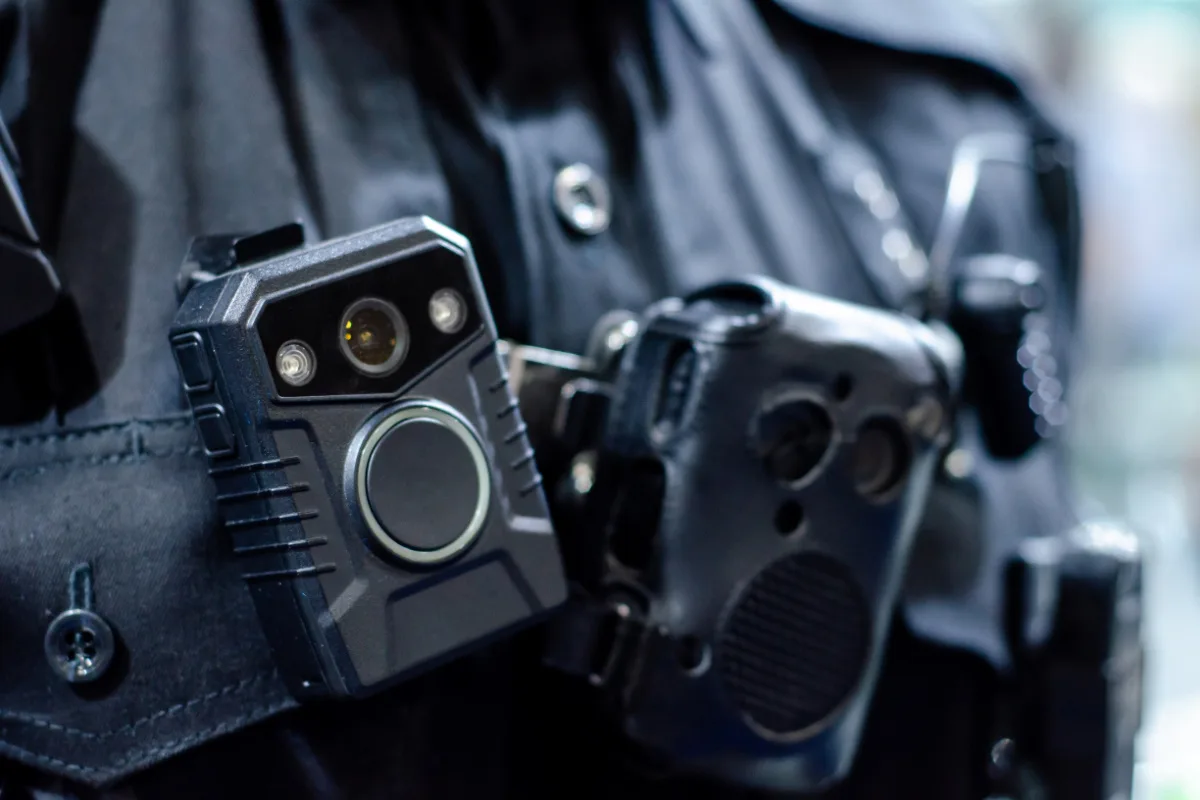
Enhanced Monitoring Of The Police And Police Activity
Police body cameras are used in many places, including the U.S., and now they will be used in Cancun.
According to the municipal president of Benito Juarez, Ana Paty Peralta, they have acquired 1,000 cameras that police officers will wear on their uniform.
The police officers wearing them cannot turn off these cameras, so they monitor them continuously.
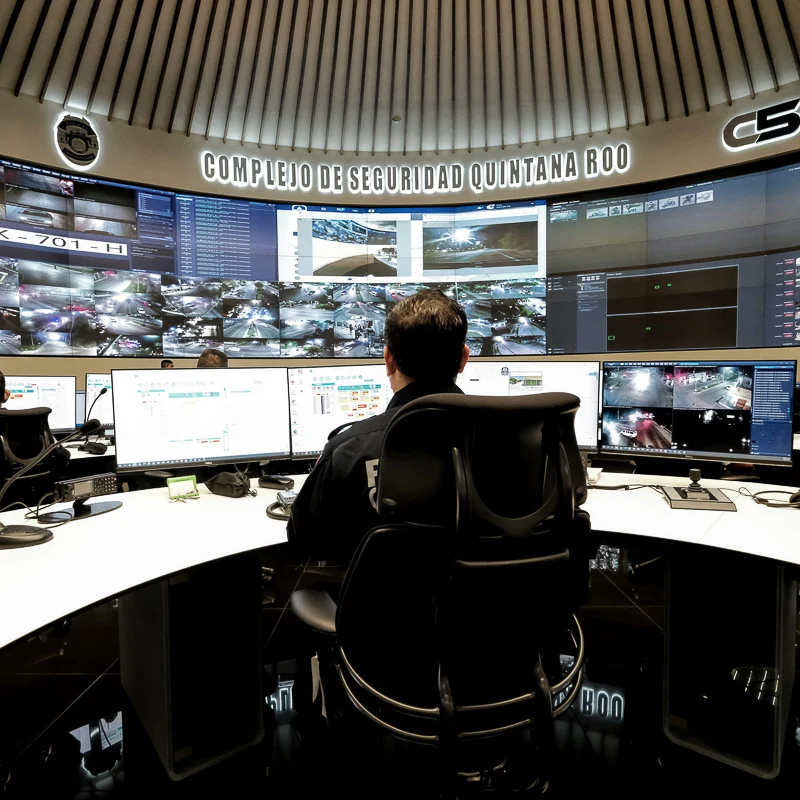
A Two-Fold Benefit
The benefit of police officers wearing cameras is two-fold.
One benefit, and the most important one, is the ability to hold officers accountable by recording their activity.
The other benefit is having footage of criminal acts to analyze, which helps determine all of the details of a crime and aids in finding the culprits.
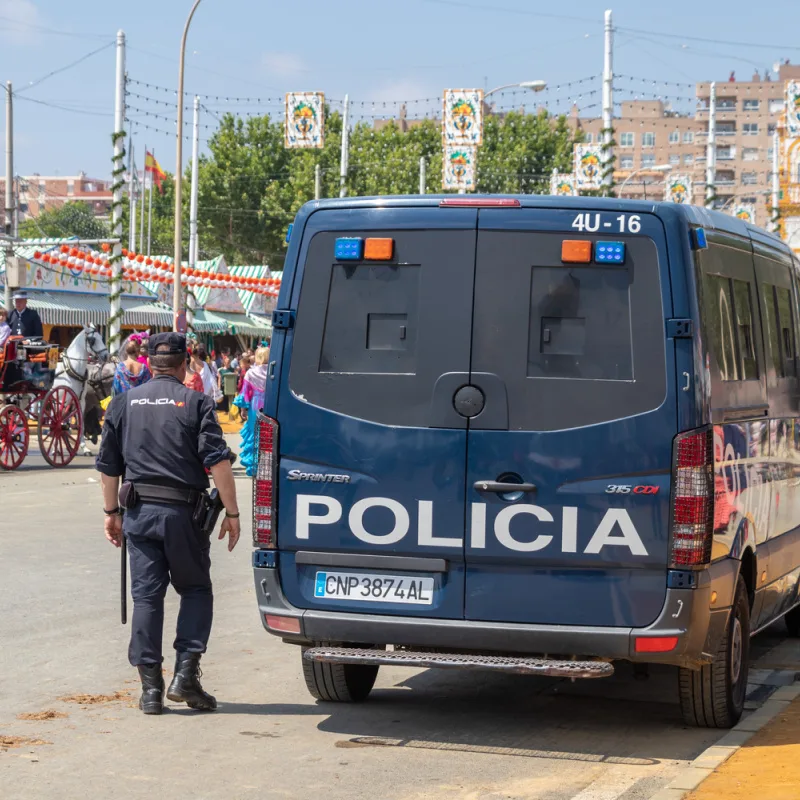
Security Cameras Throughout Cancun
Cameras for the police force are not the only cameras utilized in Cancun to help keep the destination safe.
For the last couple of years, officials have installed hundreds of cameras throughout the city, particularly in busy tourist areas.
In total, nearly 1,000 cameras have already been installed to date.
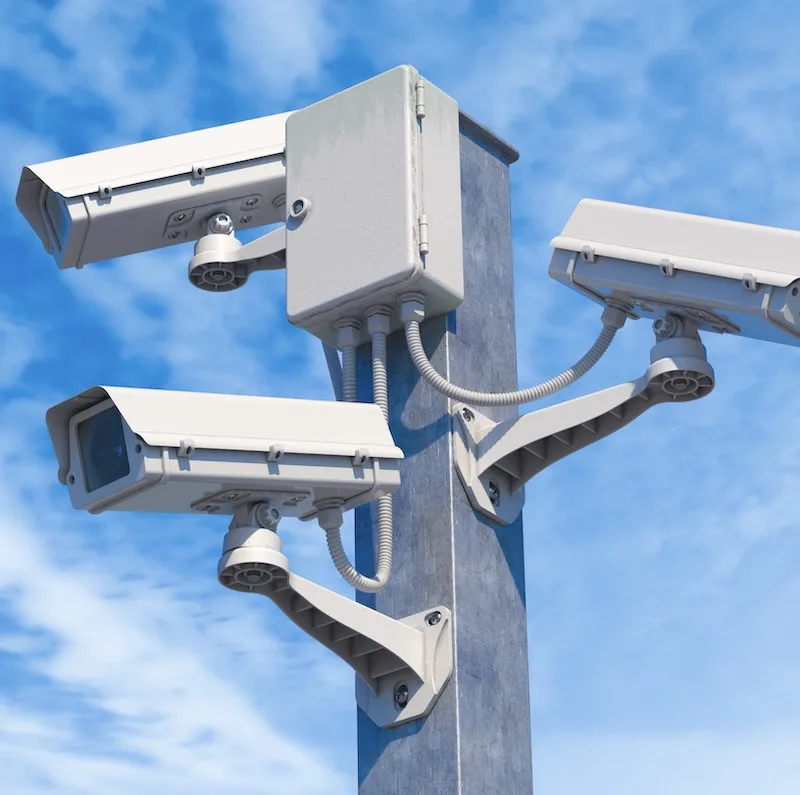
Overall Security In Cancun
There are several different ways that Cancun enhances security and, ultimately, safety at the destination.
They recently announced upgrades for the central security center, including new computers and equipment.
They also announced new equipment for the police force, including jet skis to be able to catch jet ski criminals that come onto the beach more efficiently.
It’s also not uncommon to see the military and police patrolling beaches and other tourist hotspots to keep them safe too.
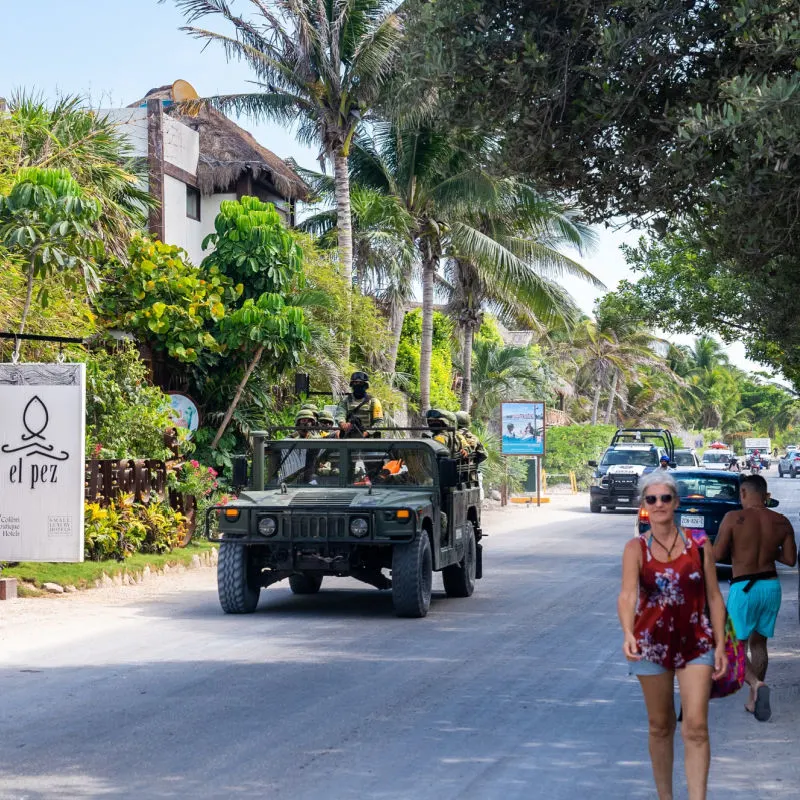
How Safe Is Cancun?
Keeping Cancun safe is crucial for tourism because people don’t want to visit a place where they don’t feel secure.
Although there is crime in the destination, just like anywhere else, they do a pretty good job of keeping it safe, and in fact, people feel safer than ever in Cancun.
The U.S. State Department, although it does suggest exercising increased caution when visiting, doesn’t even have any restrictions on travel to Cancun for American travelers or federal employees.
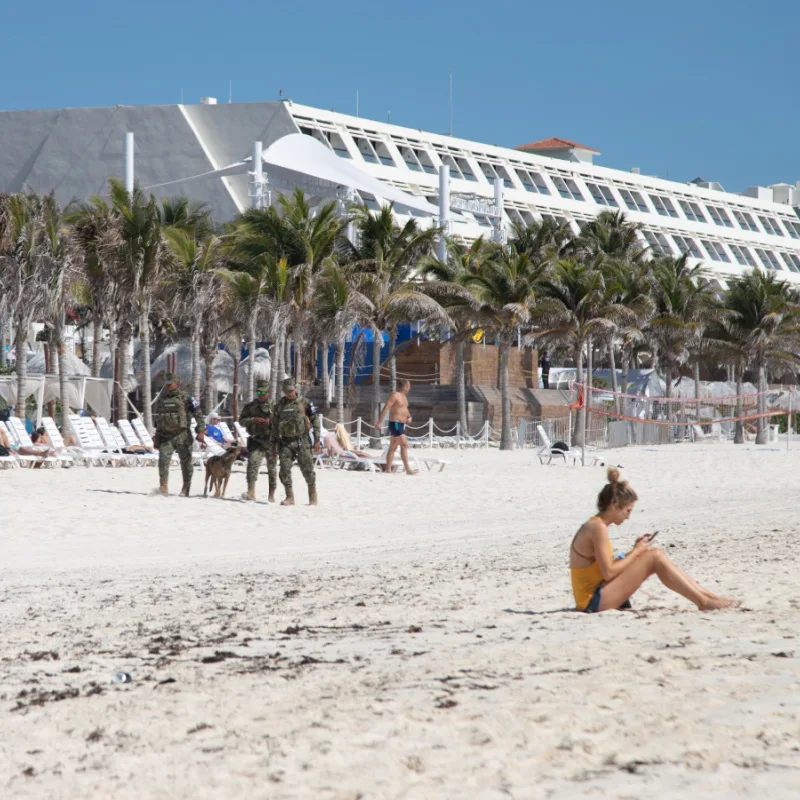
Cancun’s Tourist Hotspots
Cancun has several tourist hotspots that officials focus increased security on to protect tourists.
The beaches are monitored the most, with security elements from various branches, including the Navy, the municipal police, and the tourist police, often patrolling them, especially during high season.
The downtown area and the area around the marina are also regularly monitored to aid in crime prevention.
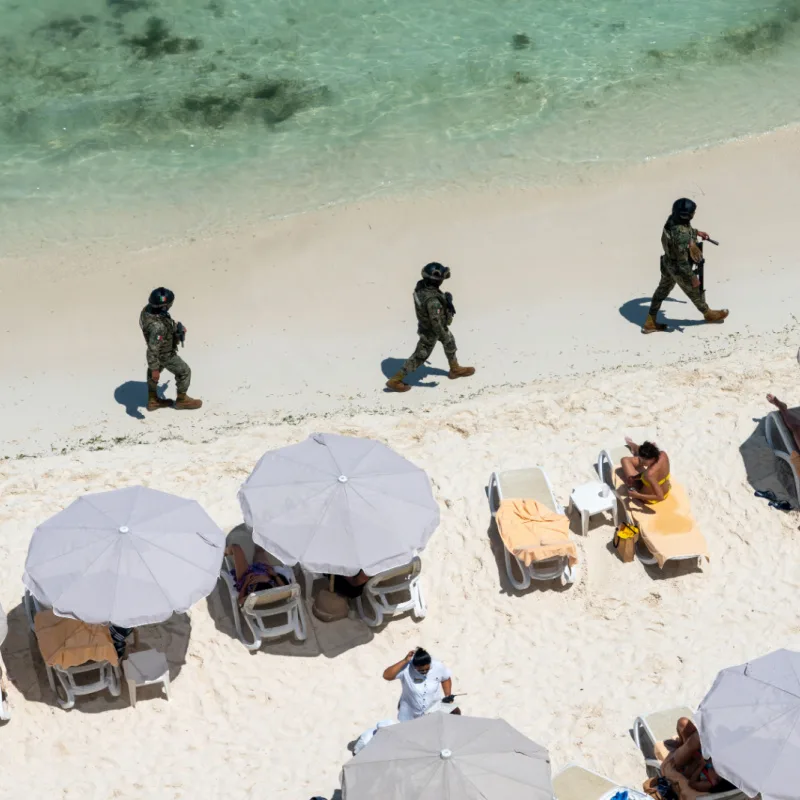
Staying Safe In Cancun
As safe as Cancun is for tourists, you should always practice a few safety tips wherever you go on vacation, whether it’s in the U.S. or abroad.
Often, criminals will target tourists who they know are out of their element.
Some of the safety tips to consider are:
- Staying in designated tourist areas.
- Not walking around alone at night.
- Avoiding taking a taxi alone.
- Not wearing flashy accessories or flaunting signs of wealth.
- Not taking drinks from people you don’t know.
- Keeping passports in a safe place back at the hotel if possible.
- Being careful around strangers.
Following these will make your safe Cancun vacation, even safer.
Plan Your Next Cancun Vacation:
Traveler Alert: Don’t Forget Travel Insurance For Your Next Trip!
Choose From Thousands of Cancun and Riviera Maya Hotels, Resorts and Hostels with Free Cancellation On Most Properties
↓ Join the community ↓
The Cancun Sun Community FB group has all the latest travel news, conversations and tourism Q&A’s for the Mexican Caribbean

Subscribe to our Latest Posts
Enter your email address to subscribe to The Cancun Sun’s latest breaking news affecting travelers, straight to your inbox.
